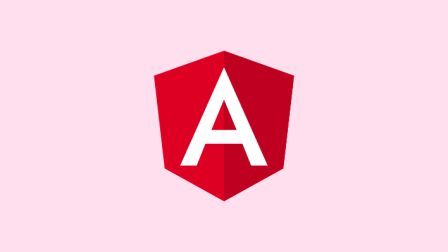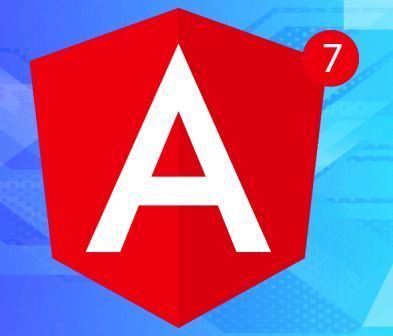Most Asked Angular Interview Questions with Answers
Are you looking for Angular Interview Questions? Are you preparing for Angular interview? This is the right place you have come. Here, we will guide and help you to enhance your Data Science skills, and be prepared for the job.
Here, we are providing a good collection of real-world Angular Interview questions which are generally asked in big companies such as Google, Microsoft, Facebook, Oracle, and Amazon etc. Each question has a perfectly written answer. So, let’s start.
Que 1) What is Angular? /What do you mean by Angular framework?
Angular is a free and open-source TypeScript-based web application framework that was developed and led by the Angular Team at Google. It is also managed by a community of individuals and corporations.
Note: Here, one thing you must keep in mind that the name Angular is referred to only the versions above and equal to the version Angular 2. The first version of Angular was Angular 1.0 and most commonly known as the AngularJS. Angular is a complete rewrite by the same team that built AngularJS.
Que 2) Who developed Angular?
Angular was developed by a team of software engineers from Google.
Que 3) When was the first version of Angular released?
The first version of Angular, i.e., Angular 2.0 was firstly released on 14 September 2016. Here, one thing you must keep in mind that we are not talking about AngularJS.
Que 4) In which language Angular is written?
Angular is written in TypeScript language. Here, you should know that TypeScript is a programming language that was developed and maintained by Microsoft.
TypeScript is a syntactical superset of JavaScript that adds optional static typing to the language. TypeScript was mainly designed for the development of large applications and transpiles to JavaScript. As we know that it is a superset of JavaScript so, existing JavaScript programs are also valid TypeScript programs. Most asked Angular Interview Questions
Que 5) What are the different versions of Angular?
First of all the team of software developers from Google has developed AngularJS. After that a comple rewrite of AngularJS was called Angular 2. To avoid the confusion, the team announced that separate terms should be used for each framework with “AngularJS” referring to the 1.X versions and “Angular” without the “JS” will be referred to versions 2 and up.
Angular 2
Angular 2 also known as version 2 was announced at the ng-Europe conference in October 2014. Its first stable version was released in May 2016. Its final version was released on September 14, 2016.
Angular 4
Angular 4 also known as version 4 was announced on 13 December 2016. The version 3 was skipped to avoid confusion due to the misalignment of the router package’s version which was already distributed as v3.3.0.
Its final version was released on March 23, 2017. Angular 4 is backward compatible with Angular 2. Angular version 4.3 was a minor release which means that it contains no breaking changes.
Features included in version 4.3
- HttpClient was introduced in this version which is a smaller, easier to use, and more powerful library for making HTTP Requests.
- It also introduced the router life cycle events for Guards and Resolvers. the four new events: GuardsCheckStart, GuardsCheckEnd, ResolveStart, ResolveEnd join the existing set of life cycle event such as NavigationStart.
- It has conditionally disabled animations.
Angular 5
Angular 5 also known as version 5 was released on November 1, 2017. The main improvements in the Angular 5 version is that it supports for progressive web apps, a build optimizer and an improved Material Design.
Angular 6
Angular 6 also known as version 6 was released on May 4, 2018. This was a major release which focused less on the underlying framework and more on the toolchain. Due to these reasons, it is easier to move quickly with Angular in the future, like: ng update, ng add, Angular Elements, Angular Material + CDK Components, Angular Material Starter Components, CLI Workspaces, Library Support, Tree Shakable Providers, Animations Performance Improvements, and RxJS v6 etc.
Angular 7
Angular 7 also known as version 7 was released on October 18, 2018. It provides updates regarding Application Performance, Angular Material & CDK, Virtual Scrolling, Improved Accessibility of Selects etc.
It now supports Content Projection using web standard for custom elements, and dependency updates regarding Typescript 3.1, RxJS 6.3, Node 10.
Angular 8
Angular 8 also known as version 8 was released on May 28, 2019. It provides some exciting features such as Differential loading for all application code, Dynamic imports for lazy routes, Web workers, TypeScript 3.4 support, and Angular Ivy as an opt-in preview.
The newly introduced Angular Ivy opt-in preview provides the following features:
- Provides a faster re-build time.
- Provides improved payload size.
- Provides improved template type checking.
- Provides backwards compatibility.
- Its generated code is easier to read and debug at runtime.
Angular 9
Angular 9 also known as version 9 was released on February 6, 2020. in this version, all applications are moved to use the Ivy compiler and runtime by default. Angular 9 is updated to work with TypeScript 3.6 and 3.7.
It also provides a lot of bug fixes. In this version, the Ivy compiler and runtime offers the following advantages:
- Debugging is better.
- Testing of code becomes faster.
- Smaller bundle sizes.
- Improved CSS class and style binding.
- Improved build errors
- Improved type checking
- Improved build times, enabling AOT on by default
- Improved Internationalization
Angular 10
Angular 10 also known as version 10 was released on June 24, 2020. It provides some new features such as:
- New Date Range Picker (Material UI library).
- Warnings about CommonJS imports.
- Optional Stricter Settings.
- Keeping Up to Date with the Ecosystem.
- New Default Browser Configuration.
- Deprecations and Removals.
Angular 11
Angular 11 also known as version 11 was released on November 11, 2020.
Angular 12
Angular 12 also known as version 12 was released on May 12, 2021. It has deprecated support for IE11.
Angular 13
Angular 13 also known as version 13 was released on November 04, 2021.
Angular 14
Angular 14 also known as version 14 was released on June 02, 2022.
Upcoming releases
After the inclusion of v9, the Angular team has moved all new applications to use the Ivy compiler and runtime. The team is continuously working on Ivy to improve output bundle sizes and development speeds.
Angular’s each version is expected to be backward-compatible with the prior release. The Angular development team mainly upgrades these versions twice in a year.
Also Read: Most Asked Angular 7 Interview Questions
Most asked Angular Interview Questions










Pingback: Most Asked Angular 7 Interview Questions -
Pingback: Most Asked SQL Interview Questions -
Pingback: Most Asked React Interview Questions -
Pingback: Most Asked JavaScript Interview Questions -